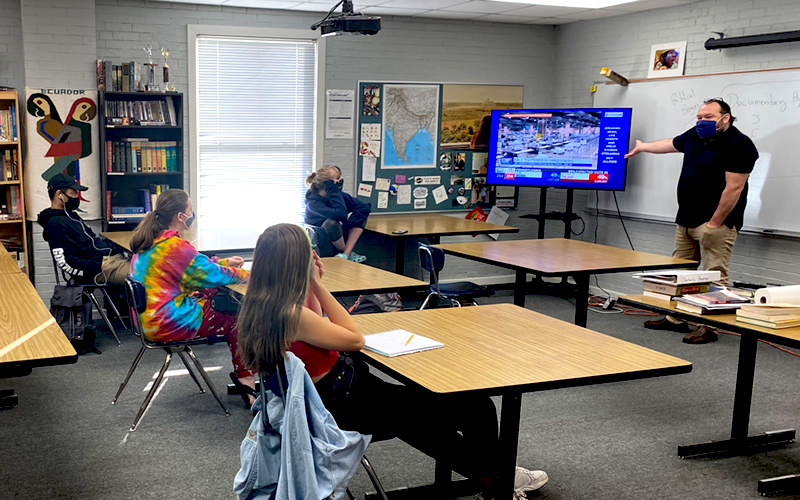This week at St. Francis has been largely dominated by the election and conversations surrounding it. Every election is a consequential event in the High School world – we have students excited to vote for the first time and others looking forward to their turn – and of course, a presidential election is particularly meaningful.
I want to share two ways in which we prepared for the events unfolding in our country and the discourse related to them. First, in collaboration with our Goshen colleagues, we created guidelines for faculty in all divisions on facilitating student conversations about the 2020 election. We set these in the context of our “How to Have Difficult Conversations” guidance (created last year and linked here) and framed them with this idea from Rosalind Wiseman’s Cultures of Dignity: “Our democracy can only survive if young people are taught that disagreement is not disrespect and we are all committed to creating and protecting the environment for civil discourse.”
Second, during Morning Meeting on Monday, history teachers Trent Apple and Diane Pecknold gave a presentation on the history of the Electoral College and an overview of the 2020 election, including how to interpret returns and what the timeframe for results might look like. They took a few questions afterward as time permitted and then spoke with many other students throughout the day to answer additional queries. Their presentation helped situate this week’s events and contextualize the time it has taken for votes to be counted and the winner announced.
Throughout this week, and always, we strive to share with students that casting a vote is a privilege and that it is a right we hope they will always exercise. Voting is not only a fundamental tenet of democracy but also a key way to shape the world into the one we wish to live in. As I came into school the morning after the election, I thought – not for the first time – that working with this next generation of voters is an immense privilege, too.
